Milwaukee Fence Finders Help Center:
Northern White Cedar for Fences
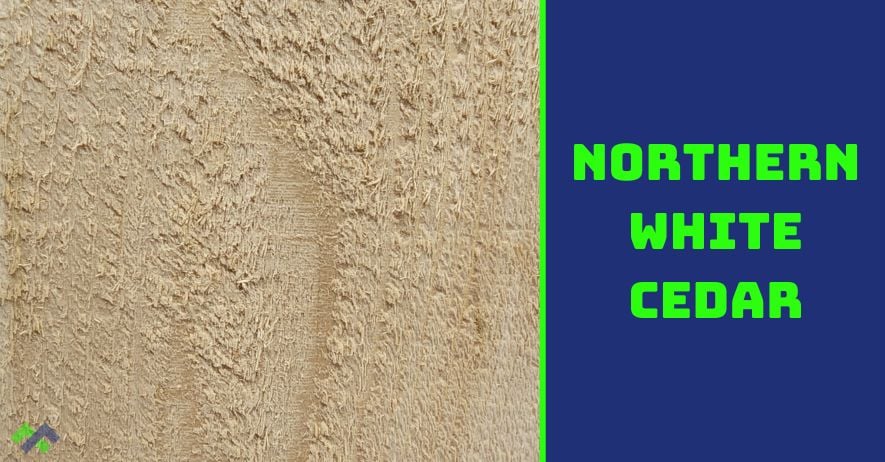
As we all aspire to make our properties not only visually appealing but also secure and long-lasting, the type of materials we choose can play a significant role. Northern White Cedar, a durable and naturally resistant wood type, has gained acclaim for its undeniable advantages in fence installations. This article will dive deep into the science behind the resistance of Northern White Cedar to rotting and insects, the role of tannins, its support to Midwest lumber mills, and small businesses, and why it makes for an excellent choice for fence installation.
What is Northern White Cedar?
Native to the northeastern part of North America, the Northern White Cedar (Thuja Occidentalis) is a resilient species of tree that thrives in wetlands and rocky ridges. Renowned for its durability and resistance to decay and insect attacks, this type of cedar has become a popular choice for various applications in construction, particularly in fence installations.

The Science Behind Northern White Cedar’s Resistance to Rot and Insects
Northern White Cedar owes its high resistance to rot and insects to the presence of naturally occurring compounds in its wood, such as thujaplicins and water-soluble phenolics. These compounds have antimicrobial properties, which slow down the rate of decay and deter insects, ensuring the wood’s longevity.
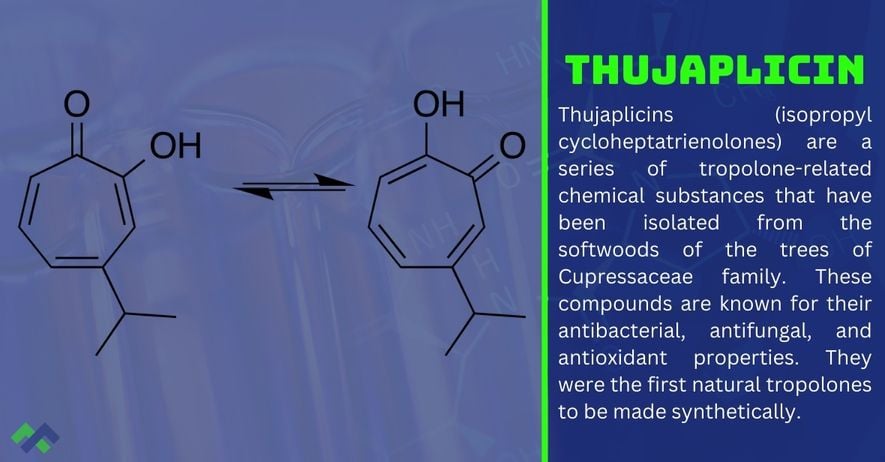
When fungi and insects come into contact with Northern White Cedar, these antimicrobial compounds disrupt their life processes. For fungi, the compounds inhibit their enzymatic activity, restricting their ability to break down the wood’s cellulose and lignin — the primary components of wood that fungi typically consume. Similarly, for insects, these compounds make the wood unpalatable, discouraging them from consuming or nesting within it.
Moreover, Northern White Cedar has a relatively low density and high oil content, which enhances its resistance to moisture absorption. This property makes it less likely to warp, shrink, or swell, reducing the risk of damage from the elements and increasing the lifespan of a fence made from this wood.
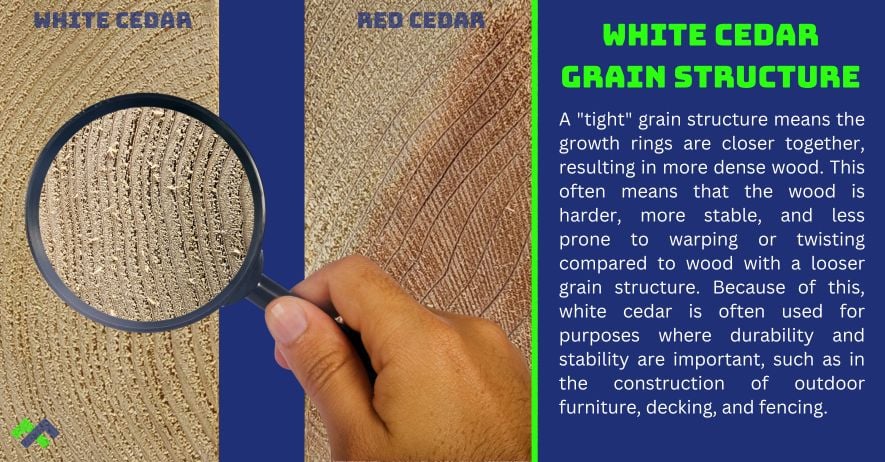
Understanding Tannins
Tannins are a group of water-soluble polyphenols that are present in many plant species, including Northern White Cedar. They are known for their ability to precipitate proteins and various other organic compounds. In plants, they play a vital role in growth and protection.

The tannins found in Northern White Cedar contribute significantly to its durability. They bind with proteins in insects and fungi, creating a physical barrier that prevents these organisms from attacking the wood. Besides, tannins also exhibit antioxidant properties, further enhancing the wood’s resistance to decay.
Northern White Cedar as the Superior Choice for Fence Installation
When considering the material for a fence installation, several factors come into play. These include durability, resistance to rot and insects, aesthetic appeal, and cost-effectiveness. Northern White Cedar outshines in all these aspects, making it the superior choice for fence installations.
Its natural resistance to decay and pests reduces the need for chemical treatments, making it an eco-friendly option. Moreover, Northern White Cedar boasts a naturally elegant color that ages to a distinguished silver-grey, enhancing the aesthetic appeal of any property. Furthermore, its ability to withstand the elements means less maintenance is required, saving homeowners both time and money in the long run.
Supporting Local Midwest Lumber Mills and Small Businesses
Choosing Northern White Cedar not only ensures a superior fence installation but also supports local Midwest lumber mills and small businesses. The Midwest is home to vast stretches of Northern White Cedar forests, and sustainable harvesting of this resource supports the local economy.
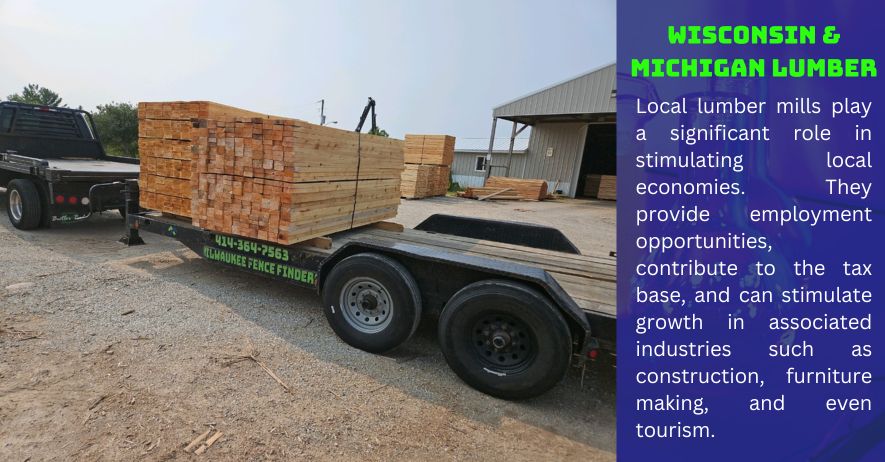
Local lumber mills contribute significantly to the regional economy by providing jobs and supporting a variety of local businesses, from logging contractors to transport companies. By opting for Northern White Cedar, homeowners are supporting a chain of businesses that bring this magnificent wood from the forests to their backyard.
Small businesses, in particular, benefit greatly from the demand for Northern White Cedar. These range from local hardware stores supplying fence installation tools and accessories to small-scale manufacturers producing bespoke cedar items. In this way, choosing Northern White Cedar supports the local economy on multiple levels.
Sustainability and the Northern White Cedar
Selecting a fence material that is sustainable is increasingly becoming a priority for many homeowners. Northern White Cedar’s natural abundance and quick growing nature make it a truly sustainable choice for fencing. It grows rapidly in the wet soils of the northern United States and southern Canada, reaching maturity in just 25 to 40 years. This short growth cycle allows for frequent harvesting without significant impact on the overall population of the species.
Moreover, the Northern White Cedar is a pioneering species, meaning it is often one of the first to grow in cleared areas, further contributing to its sustainability. Through this process, the tree helps in preserving the health of the ecosystem by preventing soil erosion, creating habitat for wildlife, and maintaining biodiversity.
The sustainable harvesting of Northern White Cedar also encourages better forest management practices, ensuring a healthy balance between growth and harvest and preserving these forests for future generations.
Installation and Maintenance of Northern White Cedar Fences
Installing a Northern White Cedar fence is a relatively straightforward process, and its natural properties make it easier to work with compared to other types of wood. It can be easily cut, shaped, and installed using common woodworking tools.
What is True Lumber vs Nominal Lumber?
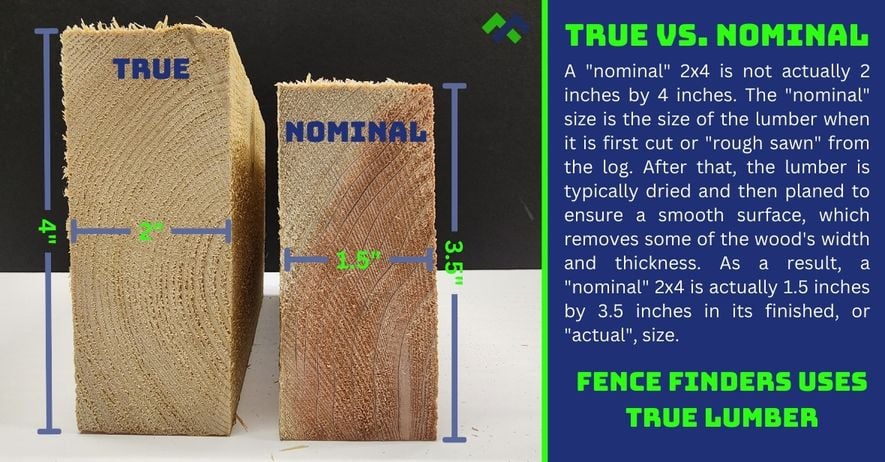
A Northern White Cedar fence requires less maintenance compared to fences made from other materials. Its resistance to decay and insects eliminates the need for regular chemical treatments. Over time, Northern White Cedar develops a beautiful silver-grey patina. However, if you prefer to maintain its original color, a light annual application of a UV-inhibiting oil can be used.
In terms of repairing or replacing parts of the fence, individual cedar boards can be easily swapped out without affecting the structural integrity of the entire fence. This flexibility makes Northern White Cedar fences a long-lasting choice that will serve and beautify your property for many years.
Economic Impact of the Northern White Cedar Industry
The Northern White Cedar industry significantly contributes to the economic vitality of the Midwest. The process from growing and harvesting to milling and selling this timber supports numerous jobs, helping to sustain local communities.
Further downstream, this industry impacts a broader range of sectors. Cedar fences require professional installers, creating job opportunities and supporting businesses in the construction sector.
Moreover, the demand for Northern White Cedar products extends beyond fencing, contributing to industries such as home and garden retail, outdoor furniture manufacturing, and more. By choosing Northern White Cedar for your fence installation, you are supporting an entire ecosystem of businesses that rely on this versatile wood.
Aesthetic Versatility of Northern White Cedar
Northern White Cedar’s aesthetic versatility is another factor that makes it an excellent choice for fence installations. It has a light, fine-grained appearance that can be left to age naturally into a stunning silver-grey, or it can be stained or painted to match the color scheme of your property.
What is Rough Sawn?
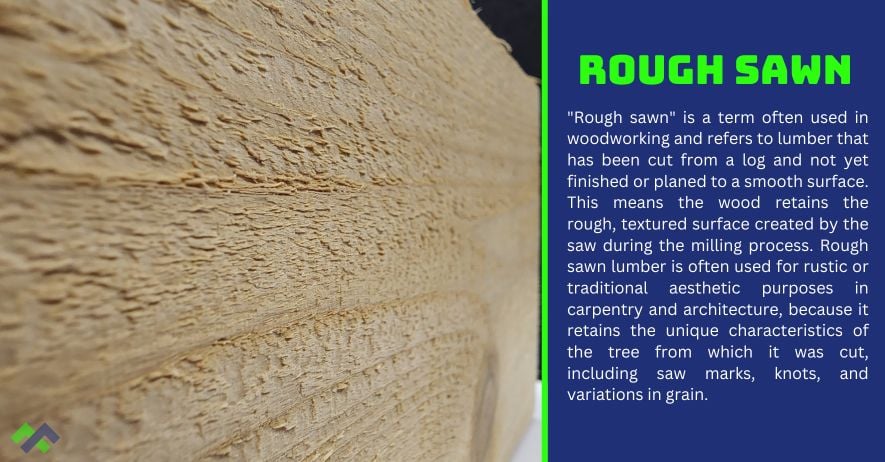
Its aesthetic appeal extends beyond its color. With its straight grains and uniform texture, Northern White Cedar allows for a variety of design options. Whether you prefer a traditional picket fence, a privacy fence, or a custom design, Northern White Cedar can accommodate any style, enhancing the curb appeal of your home.
FUN FACT! The Health Benefits of Northern White Cedar
Another less-known advantage of Northern White Cedar is its health benefits. The tree has been used for centuries by indigenous communities for its medicinal properties. The cedar leaf oil derived from the tree is known to have anti-septic, anti-rheumatic, and anti-fungal properties.
Moreover, the aroma of Northern White Cedar is not only pleasing but also beneficial to our well-being. It emits a natural, soothing scent that can repel moths and other pests. Studies have also suggested that exposure to the natural aroma of cedarwood can have a calming effect, reducing stress and promoting relaxation.
So, Is White Cedar the Best Choice for a Fence?
When it comes to fence installation, Northern White Cedar emerges as a standout choice due to its natural resistance to rotting, insects, and decay, which can be attributed to the presence of thujaplicins, water-soluble phenolics, and tannins in the wood. Its elegant aesthetic appeal, longevity, and low-maintenance needs further enhance its suitability for fence installations.
Moreover, opting for Northern White Cedar supports Midwest lumber mills and small businesses, contributing to local economies and encouraging sustainable practices. So, next time you’re planning a fence installation, remember that choosing Northern White Cedar not only guarantees a quality fence but also supports a chain of hardworking individuals bringing this superior wood from the forest to your home.
For all things related to fences, from installation to maintenance, Milwaukee Fence Finders is here to help. Our team of experts is dedicated to providing the best possible service to make your fence installation as smooth and successful as possible. With our wide selection of fencing materials, including top-quality Northern White Cedar, we can ensure that your new fence will be a beautiful, durable addition to your property.
For more informative articles like this and to learn about our services, please continue browsing our Help Center. Let us help you make informed decisions for your property.















